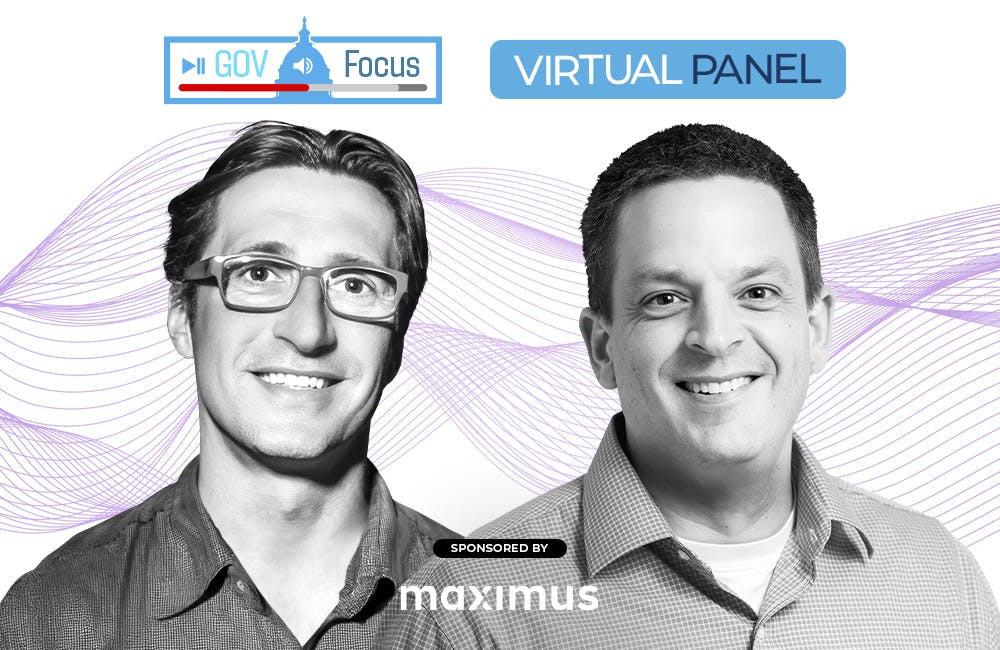Dealing with Data and Emerging Tech

As the creation and collection of data continue to increase dramatically, industry and federal stakeholders alike are grappling with the ramifications of unprecedented access to insights and the corresponding challenges of privacy and security.
The benefits of unlocking data-driven insights are many. However, if data is the new oil, as some say, then IT leaders in both industry and government must proceed purposefully, engaging in open dialogue to promote data best practices and forestall malicious or unintended consequences. Federal agencies, in particular, are in a unique position to leverage the petabytes of data they possess to better execute their missions and improve the citizen experience.
Agency leaders from the Small Business Administration, the White House and the U.S. Digital Service at the Department of Veterans Affairs provided some insight into how federal agencies are dealing with today’s unprecedented age of data collection and how they might leverage data and associated technologies to glean valuable insights during a panel at the GovernmentCIO Tech Futures event last week.
One such emerging technology with data-related ramifications and beyond is quantum information science. The White House Office of Science and Technology Policy (OSTP) has been focused on developing a national approach to the science, including quantum networking and computing, for the past year and a half, according to interim director of the White House’s new National Quantum Coordination Office Jake Taylor. That approach included the unanimous passage of the National Quantum Initiative Act in December 2018 to fund advancements in quantum information science. As a result of that bill becoming law, in March 2019, the OSTP established the office Taylor now leads.
Taylor framed the administration’s exploration and implementation of quantum computing with a question. “How do federal agencies continue to adapt as quantum information technologies impact their mission space?” Taylor asked. “You can imagine that when the fundamental way we compute is changing, that those changes are going to be particularly hard, and it is only through conversations like this and engaging with this community that we can keep the awareness moving.”
Interestingly, Taylor said that one of the primary applications of quantum information science is shaping up to deal not with data, but with how data is protected. Specifically, one of the main applications of quantum computing is breaking public-key cryptography, which underlies much of the modern internet infrastructure, including billions and billions of dollars of e-commerce, Taylor said. To address this vulnerability, the National Institute of Standards and Technology (NIST) has been involved in an eight-year process to set standards for quantum-resistant cryptography that federal agencies will be asked to implement by around 2039, according to Taylor.
As daunting as this may sound, it is merely one challenge surrounding the field of data science.
Dealing with data and emerging technologies in the data landscape like AI, machine learning and quantum information science is challenging, particularly within federal agencies that bring their own set of unique challenges and restrictions. For example, the enterprise scale of an agency like the VA makes IT transformation a challenging prospect, according to Presidential Innovation Fellow Joy Whitt, who works on the USDS embedded team at VA. “It’s like trying to get a large city on board with your idea,” she said.
To combat problems of scale and transformation difficulties, building trust with users and stakeholders is critical, Whitt said. Listening to peoples’ concerns during any given IT transformation project is key to understanding why stakeholders might be resistant to new technologies or processes, and then leveraging those insights to build buy-in.
Building awareness of data issues and solutions is key, and agencies across the federal government are leveraging innovative solutions to garner buy-in.
At SBA, IT leaders like SBA CTO Sanjay Gupta are experimenting with hackathons to encourage use of open data sets, generate innovative ideas and identify promising talent. Within the past year, SBA has hosted three such hackathons, according to Gupta.
One recurring theme throughout the panel was the value of data — for industry, for domestic federal agencies, for military agencies and with international ramifications as countries compete in fields like AI and machine learning. While the functional value of data varies by how it’s applied, generally speaking, data has become a valuable resource in its own right. Gupta’s succinct observation on the value of data says a lot about where we are today and where we might be headed in the near future.
“Data is the currency of the digital world,” Gupta said.
This is a carousel with manually rotating slides. Use Next and Previous buttons to navigate or jump to a slide with the slide dots
-

DHA CDAO Spearheads Master Data Catalog to Boost Transparency
Jesus Caban plans to boost DHA's data maturity through a new master data catalog, governance frameworks and inventory of tech tools.
5m read -

IHS Prepares to Deploy PATH EHR at Pilot Sites in 2026
IHS targets PATH EHR pilot in 2026, emphasizing governance, collaboration and interoperability as key pillars of the modernization strategy.
4m read -

Trump Orders Spark Government-Wide Acquisition Overhaul
As Trump pushes for a faster, simpler procurement system, agencies are leveraging AI and adapting strategies to meet new requirements.
5m read -

IRS Makes Direct File Code Public as Lawmakers Debate Program’s Fate
The agency sees the Direct File source code as beneficial to government digital services despite what happens with it in proposed budgets.
5m read -

Inside Oak Ridge National Lab’s Pioneer Approach to AI
Energy Department’s Oak Ridge National Lab transforms AI vulnerabilities into strategic opportunities for national defense.
22m listen -

A Look at Federal Zero Trust Transformation
Recent developments from CISA and DOD show how government is advancing zero trust quickly.
20m read -

Modernization Strategies to Enable Energy Innovation
Lawrence Berkeley National Lab and Maximus experts explore the modernization strategies driving digital transformation and operational resilience within the energy sector.
33m watch -

DOI Must Modernize Energy to Win AI Race, Secretary Says
Doug Burgum links AI innovation to energy reform as DOI advances digital infrastructure and wildfire response under Trump’s tech agenda.
2m read -

Army Combines Commands to Propel Innovation Under New Transformation Plan
Lt. Gen. Miles Brown outlines a new transformation strategy after the AFC–TRADOC merger to integrate new technologies within 18 months.
4m read -

NIST to Release New AI Cybersecurity Guidance as Federal Use Expands
NIST plans to release AI cybersecurity guidance within the year to support safe adoption as federal agencies expand use cases.
4m read -

Federal Zero Trust Forum
The Federal Zero Trust Forum brings together key technology leaders from across government to explore practical strategies and share lessons for advancing zero trust architecture.
Ritz Pentagon City | 1250 S Hayes St, Arlington, VA 22202 -

CIA Adds Fourth Pillar to AI Strategy, CAIO Says
Lakshmi Raman says the new pillar marks a strategic shift toward embedding AI more deeply into the CIA’s day-to-day mission execution.
3m read
















